Discover The Edtech Podcast
The Edtech Podcast

The Edtech Podcast
Author: The Edtech Podcast
Subscribed: 2,178Played: 19,361Subscribe
Share
Description
The mission of The Edtech Podcast is to improve the dialogue between 'ed' and 'tech' through storytelling, for better innovation and impact.
The Edtech Podcast audience consists of education leaders from around the world, plus startups, learning and development specialists, bluechips, investors, Government and media. The Edtech Podcast is downloaded 2000+ each week from 145 countries in total, with UK, US & Australia the top 3 downloading countries. Podcast series have included Future Tech for Education, Education 4.0, and The Voctech Podcast, Learning Continued, Evidence-Based EdTech, and AI in Ed: Our Data-Driven Future series on AI.
Send your qs and comments to @PodcastEdtech, theedtechpodcast@gmail.com, or https://theedtechpodcast.com/ or leave a voicemail for the show at https://www.speakpipe.com/theedtechpodcast
The Edtech Podcast audience consists of education leaders from around the world, plus startups, learning and development specialists, bluechips, investors, Government and media. The Edtech Podcast is downloaded 2000+ each week from 145 countries in total, with UK, US & Australia the top 3 downloading countries. Podcast series have included Future Tech for Education, Education 4.0, and The Voctech Podcast, Learning Continued, Evidence-Based EdTech, and AI in Ed: Our Data-Driven Future series on AI.
Send your qs and comments to @PodcastEdtech, theedtechpodcast@gmail.com, or https://theedtechpodcast.com/ or leave a voicemail for the show at https://www.speakpipe.com/theedtechpodcast
320 Episodes
Reverse
In our second episode on AI in UK schools, Professor Rose Luckin explores AI integration further with three very special guests helping to lead the way with AI in their institutions. Talking points and questions may include: What is the extent of AI penetration in your schools, including teacher usage, classes avoiding it, student use, and any strategies or evaluation plans in place regarding reactive or proactive AI adoption? No AI is risk-free, so concerns around impacts on learning, creativity, authorship, assessment, and whether students genuinely understand AI-generated content are critical issues Safeguarding measures must address the risks of AI providing misleading, biased, or explicit content without consent as these technologies proliferate in classrooms Comprehensive AI training is needed for educators at all levels to ensure smooth technology transitions while maintaining human-centric learning approaches as new tools and understanding are required Guests: Adam Webster, Deputy Head (Innovation), Caterham School & CEO of Sphinx AI Scott Hayden, Head of Teaching, Learning, and Digital, Basingstoke College of Technology Chris Goodall, Head of Digital Education, Bourne Education Trust
What's in this episode? Hello everyone! In this week's episode, we travel nearly 5000 miles from the UK to China, to talk about increasing interest in competency based education. Plus, a listener news item on a new partnership on UK Maths Edtech. First up, you'll hear Edtech Podcast listener Sonnie Tan interviewing the Founder of KitCat, Michael Huang. In this interview with Sonnie, Michael talks about how he think the Gaokao exam will slowly develop to recognise student's more creative needs, as well as knowledge of cutting edge technologies, and how to apply them, such as AI. Our second interview is with Yiwei Zhang, Director of International EdTech Projects at Rayee. Rayee is a knowledge provider on education within China, with a focus on well-rounded education rather than the exam-orientated K-12 after school tutoring market that you may have heard a lot about. In this recording you'll hear from Yiwei about how shopping malls are providing space for students to broaden their learning, whilst their parents enjoy some recreation. What do you think about this set up? Stay in touch and have a great week! People Sophie Bailey is the Founder and Presenter of The Edtech Podcast | Twitter: @podcastedtech Michael Huang 黄锐诚, Founder, Kacademy and Kitcat Yiwei Zhang, Director of International EdTech Projects at Rayee. Show Notes and References Check out https://theedtechpodcast.com/edtechpodcast for the full show notes. Tell us your story We'd love to hear your thoughts. Record a quick free voicemail via speakpipe for inclusion in the next episode. Or you can post your thoughts or follow-on links via twitter @podcastedtech or via The Edtech Podcast Facebook page or Instagram.
In today's rapidly evolving educational landscape, Artificial Intelligence is emerging as a transformative force, offering both opportunities and challenges. As AI technologies continue to advance, it's crucial to examine their impact on student expectations, learning experiences, and institutional strategies. One pressing question is: what do students truly want from AI in education? Are they reflecting on the value of their assessments and assignments when AI tools can potentially complete them? This begs the deeper question of what we mean by student success in higher education and the purpose of knowledge in an AI-driven economy. Professor Rose Luckin is joined by three wonderful guests in the studio to discuss what tools we need to support students and how we explore the potential and the limitations of AI for education. Guests: Michael Larsen, CEO & Managing Director, Studiosity Sally Wheeler, Professor, Vice-Chancellor, Birkbeck, University of London Ant Bagshaw, Executive Director, Australian Technology Network of Universities Talking points and questions include: Student expectations and perspectives on using AI for assessments/assignments and the role of knowledge in an AI economy The potential of AI to enhance learning through features like instant feedback, error correction, personalized support, learning analytics How AI could facilitate peer support systems and student community, and the research on the value of this The lack of robust digital/AI strategies at many institutions as a barrier to effective AI adoption The evidence-base for AI in education - challenges with research being highly specific/contextual, debating the value of in-house research vs general studies Whether evidence on efficacy truly drives institutions' buying decisions for AI tools or if other factors/institutional challenges are stronger influences How challenges facing the education sector can inhibit capacity for innovative deployments like AI The growing need for proven, supportive AI tools for students despite institutional constraints
We kick off this final day at Bett UK 2026 with a splash of joy as Dr. Ali Struthers and James from Taskmaster Education take us inside the "Taskmaster Club." They discuss how the beloved TV format is being used to assess the "unmeasurable" skills like collaboration, lateral thinking, and resilience while teaching children valuable life lessons about fair play and understanding that "not everyone is a winner". Turning to the structural side of education, we navigate the complex world of professional standards with Andy Donachie from The CPD Group, who issues a critical warning about the surge of low-quality, AI-generated training and emphasizes why true credibility must remain rooted in human expertise. Rounding out the episode, Michael Forshaw from EdTech Impact tackles the hidden challenge of "shadow apps," explaining how his new "Digital Audit" service helps schools uncover forgotten subscriptions and shift their focus from buying "shiny" tech to measuring actual evidence and impact in the classroom. Although Bett UK 2026 has come to a close, the innovation continues. Visit https://uk.bettshow.com/ to explore the highlights and stay connected with the community. This episode is proudly sponsored by Everway – visit them at https://www.everway.com/ – and by the Bett UK team.
We begin this episode with Andrew from the National Literacy Trust, who unveils the "National Year of Reading" campaign in response to a sharp decline in reading enjoyment among children. Andrew argues that in an AI-first world, literacy is more vital than ever, and shares how connecting texts to students' passions from gaming to sports can rekindle their "reader identity." Next, Connor Gaitley from Edmentum shifts the focus to "career-connected learning." Connor discusses how tools like Major Clarity are helping students explore diverse future pathways whether university or apprenticeships ensuring that education meets every learner where they are and closes no doors. We then explore practical AI tools for the classroom with Will from RedPen AI, a former teacher who turned his frustration with workload into innovation. Will explains how his platform bridges the gap between handwritten work and digital assessment, acting as a "second pair of eyes" to track progress without requiring 1:1 devices. Finally, Liz Crawford from Kahoot! joins us to discuss the platform's evolution from a simple quiz tool to an enterprise-ready learning ecosystem. Liz highlights their new AI generation features, deep integration with LMS platforms, and the 200+ independent research studies proving their impact on student outcomes. Although Bett UK 2026 has come to a close, the innovation continues. Visit https://uk.bettshow.com/ to explore the highlights and stay connected with the community. This episode is proudly sponsored by Edmentum – visit them at https://www.edmentum.com/ – and by Edruption, powering the future of learning at https://edruption.com/.
We open this episode with Vicky Merrick, who shares insights from her groundbreaking pilot projects on collaborative assessment. Vicky explains how "comparative judgment" is revolutionizing subjective subjects like Art and Music, allowing teachers to achieve high statistical reliability by comparing student work rather than deciphering complex rubrics. Following Vicky, Mark House from RM broadens the discussion to the "global conundrum" of assessment in the age of AI. Mark argues that we must "measure what we treasure" rather than letting technology dictate values, emphasizing the importance of local context such as honoring rural community values and addressing the disconnect between passing exams and possessing the skills employers actually need. Rounding out the conversation, Nici Foote passionately advocates for bringing "joy" back into learning and ensuring digital inclusion. Nici discusses how tools like Canva are leveling the playing field for neurodiverse students even making complex tasks like timetabling fun and challenges the narrative around phone bans. Instead of bans, she suggests building "analogue communities" for balance while teaching authentic digital skills, and calls for affordable resources to support Teaching Assistants (TAs), whom she identifies as the "missing link" in special education. Ready to experience the innovation firsthand? Make sure to check out what is happening at Bett UK 2026 at https://uk.bettshow.com/. This episode is proudly sponsored by Everway – visit them at https://www.everway.com/ – and by Edruption, powering the future of learning at https://edruption.com/.
Live from the energy of Day 2 at Bett UK, we sit down with Andrew Slawinski, Lead of Product Development for LEGO Education, to discuss how they are empowering teachers to become "superheroes" every week. The conversation centers on the launch of LEGO Education Computer Science and AI, where Andrew passionately advocates for moving past the "hype" of chatbots. Instead, LEGO is focused on teaching the fundamentals of AI such as probability, bias, and machine representation demystifying the technology so students see it not as "magic," but as a tool they can take apart, understand, and build with. We also dive into the critical ethics of EdTech, covering LEGO's strict "red lines" on privacy ensuring no data ever leaves the classroom and their refusal to anthropomorphize AI. Andrew explains the rigorous "Substitute Teacher Test" used to ensure educator confidence and shares insights from their new student-voice report, proving that children are eager to look under the hood of the technology shaping their world. Ready to experience the innovation firsthand? Make sure to check out what is happening at Bett UK at https://uk.bettshow.com/. This episode is proudly sponsored by Edmentum – visit them at https://www.edmentum.com/.
We kick off this special episode with Lord Jim Knight, who shares his powerful perspective on the "moral panic" surrounding technology in schools. Rather than banning devices, Lord Knight advocates for a more nuanced approach balancing safety with agency and explores how AI can revolutionize assessment through methods like the "viva" to support lifelong learning and inclusion. Next, we sit down with Jez and Jon from YouHQ to discuss their journey from a simple goal-setting idea to a comprehensive wellbeing platform used in nearly 200 schools globally. They reveal how their tool has evolved into a critical safeguard, helping schools identify "invisible" students who are struggling, while also empowering young people to track their sleep, mood, and personal goals. Finally, we are joined by Paddy from Everway, one of our sponsors, to talk about their commitment to "cradle to grave" inclusion. Paddy explains how Everway is ensuring that the accessibility tools students rely on in school like read-aloud and dictation are available in high-stakes exams and carry through to the workplace, truly leveling the playing field for neurodiverse individuals throughout their lives. Ready to experience the innovation firsthand? Make sure to check out what is happening at Bett UK 2026 to join the global community of educators transforming the future. This episode is proudly sponsored by Everway – visit them at https://www.everway.com/ – and by Edruption, powering the future of learning at https://edruption.com/.
Live from the floor of Bett UK 2026, we sit down with Shantanu, who leads product and engineering for Google for Education, to discuss how AI is moving from "promise to practice" in classrooms worldwide. Shantanu reveals how Google is prioritizing educator control and student data privacy while rolling out powerful tools like Gemini 3.0, which is now accessible for free to education institutions. From the "LearnLM" initiative that fine-tunes models with learning science to new features in Google Classroom that can turn content into audio lessons, we explore how technology is being designed to meet the unique pedagogical needs of schools. We also dive into the transformative potential of personalization and accessibility, hearing how tools like NotebookLM allow users to convert complex research into podcasts or slide decks that suit their learning style. Shantanu shares insights from global pilots—including one in Northern Ireland where educators saved up to 10 hours a week—and discusses the importance of AI literacy resources like the gamified "AI Quest" for younger learners. Whether you are an educator looking to save time or a leader navigating the ethics of AI integration, this conversation offers a deep look into the future of the Google Workspace ecosystem. Ready to experience the innovation firsthand? Make sure to check out what is happening at Bett UK 2026 at https://uk.bettshow.com/ to join the global community of educators transforming the future. This episode is proudly sponsored by Edmentum – visit them at https://www.edmentum.com/ – and by Edruption, powering the future of learning at https://edruption.com/.
Live from the bustling floor of BETT UK 2026, this special episode weaves together three distinct perspectives on nurturing student potential. We kick off with Kerry Weston from the world-renowned BRIT School, who shares how they are "wedging in" digital innovation alongside traditional arts. Kerry discusses the ethical collision of AI and creativity, the concept of "vibe coding," and why human connection remains the unshakeable core of their curriculum. Next, we are joined by Joanna Gibbs, founder of SENsational Tutors, Ltd. Joanna takes us through her diverse journey from supporting challenging behavior in the NHS to teaching in international schools and how this shaped her vision for neuro-inclusive education. She opens up about the current anxiety within the sector regarding the upcoming 2026 SEND white paper and the uncertain future of EHCPs. Joanna also offers a grounded perspective on technology, discussing how AI can be a powerful tool for creating "social stories" to reduce anxiety for autistic students, while passionately arguing that it must never replace the human connection that defines true support. Closing out the episode, we turn to the structural side of student welfare with Phil, founder of Tide Education. Driven by a personal experience with his daughter's education, Phil highlights the struggles schools face with disparate data and "lost" information. He explains how Tide Education is replacing scattered spreadsheets with a unified, collaborative timeline of interventions, ensuring that every student's support journey is captured, visible, and actionable for educators. Ready to experience the innovation firsthand? Make sure to check out what is happening at BETT UK 2026 to join the global community of educators transforming the future. This episode is proudly sponsored by Everway – visit them at https://www.everway.com/ – and by Edruption, powering the future of learning at https://edruption.com/.
Ever feel like education keeps moving forward, yet too many learners are still being left behind? Curricula feel disconnected from real life, assessment systems label students too early, while technology and AI are advancing faster than schools can adapt. The result is a growing gap between what learners need and what the system delivers. In this episode, Philippa Wraithmell speaks with Dan Fitzpatrick about his journey from teacher and education leader to becoming one of the most influential global voices on AI in education. The conversation explores how the emergence of ChatGPT became a major turning point, unlocking new possibilities for teachers, school leaders, and policymakers to improve efficiency, accessibility, and the overall quality of learning. Dan also reflects on the tension between risk and opportunity in AI, the importance of courageous decision-making, the role of leadership, and why schools must move beyond frameworks toward long-term visions grounded in the real needs of learners and educators. This discussion feels especially timely as we approach Bett UK 2026, where topics such as AI, educational leadership, ethics, accessibility, and the future of learning take centre stage on a global platform. Dan's ideas around "throwing your hat over the wall," making safe but bold experiments, and fostering collaboration across schools and industry align closely with Bett's spirit as a meeting place for innovators, educators, and policymakers shaping the future of education in a rapidly evolving technological landscape. Listen to the full podcast episode for deeper insights, strategic reflections, and practical inspiration on AI in education. You are also invited to explore Bett UK and connect directly with cutting-edge innovation and thought leaders in EdTech via the official link: https://uk.bettshow.com/ Edmentum believes that every student deserves the opportunity to thrive everywhere learning occurs—whether they seek to catch up, stay on track, or chart their own path. Edmentum's comprehensive, research-backed learning acceleration solutions help schools expand opportunity and diploma options, elevate future-ready learning, and advance personalized achievement in more than 100 countries globally. To learn about proven programs that help meet your goals across K-12, visit www.edmentum.com
Ever feel like education keeps moving forward, yet too many learners are still being left behind? Curricula feel disconnected from real life, assessment systems label students too early, while technology and AI are advancing faster than schools can adapt. The result is a growing gap between what learners need and what the system delivers. In this episode, Philippa has a conversation with Al Kingsley to explore those tensions head-on, from what truly defines a good school to why curiosity, human skills, and equitable access to technology matter more than ever. Together, they unpack the uncomfortable questions education often avoids and why now is the moment to rethink learning for a changing world. These conversations don't end with the podcast. Bett UK 2026 is where educators, leaders, innovators, and policymakers from around the world come together to turn ideas into action. From AI and edtech to curriculum and human-centred education, Bett is where the future of learning takes shape. Save the date and join Bett UK 2026 - because meaningful change starts with showing up. Don't miss the chance to experience the innovations shaping the future of education firsthand and be part of this global conversation. For full details and registration, please visit: https://uk.bettshow.com/
In this episode, Philippa Wraithmell and Rob Hughes, co-founder of Tandem, explore a revolutionary approach to screen time that challenges the narrative of "parenting guilt" and passive consumption. Rob explains how Tandem leverages generative AI not to replace parents, but to act as a "tech for two" bridge that sparks creativity, co-creation, and shared reading moments. The conversation also addresses complex emotional challenges such as hospital visits and family separation. As they delve into the ethics of AI guardrails and the crucial difference between a "digital pacifier" and a tool for connection, Rob issues a stark warning about the current trajectory of child development and the very real danger that lies ahead if children are allowed to form their first emotional attachments to robots rather than humans. These vital conversations around ethical AI and the preservation of human connection sit at the heart of Bett UK 2026, the world's leading EdTech event, taking place from 21 to 23 January 2026 at ExCeL London. Bringing together more than 35,000 educators, policymakers, and innovators, Bett UK serves as an essential global stage to address the very warnings issued by experts like Rob, exploring how we can harness the latest innovations without compromising child development. Featuring 600+ exhibitors and hundreds of expert speakers, the event offers hands-on demos, Tech User Labs, and the Connect @ Bett programme to foster meaningful collaboration—ensuring that the future of learning, and themes such as AI in education and inclusion, remain focused on empowering human relationships rather than replacing them. Don't miss the opportunity to experience the innovations shaping the future of education firsthand and be part of this global conversation. For full details and registration, please visit: https://uk.bettshow.com/
In this episode, our host Philippa Wraithmell is in conversation with Alina Sava, a Senior Education Specialist at the World Bank, discussing Alina's journey in education and the transformative role of AI in the sector. She emphasizes the importance of equity in education, the necessity of lifelong learning, and the evolving curriculum that incorporates critical thinking. Alina highlights the need for governments to create frameworks for AI integration while ensuring that teachers remain central to the learning process. The discussion also touches on the potential digital divide in AI access and the importance of preparing students for an AI-driven world. Are you an educator or innovator interested in how technology is shaping the future of learning? Bett UK 2026 is the world's leading EdTech event, taking place from 21 to 23 January 2026 at ExCeL London. It brings together more than 35,000 educators, policymakers, education leaders, and EdTech innovators from around the world, alongside 600+ exhibitors and hundreds of expert speakers. Bett UK showcases the latest innovations in education technology, with hands-on demos, Tech User Labs, TableTalks, and the Connect @ Bett programme designed to foster meaningful collaboration between decision-makers and solution providers. With a strong focus on themes such as AI in education, inclusion, and the future of learning, Bett UK continues to be a key global platform for inspiration, insight, and transformative conversations in education. Come to Bett 2026 and listen to the full episode to explore what needs to change now and what the future of learning could look like if we get it right.
Teachers today are genuinely time-poor. Between increasing administrative demands, constant assessment, and the rapid rise of AI, finding professional development that truly fits into a teacher's reality can feel impossible. Too often, CPD remains one-size-fits-all detached from linguistically diverse classrooms and the real challenges educators face every day. When professional learning fails to connect with practice, the impact goes far beyond wasted hours. Essential skills such as oracy, effective EAL strategies, and healthy digital habits are overlooked, contributing to teacher burnout and leaving students ill-equipped for life beyond the classroom. In this podcast episode, we speak with experts from Hachette Learning Academy about a more adaptive, teacher-led approach to professional learning one that prioritises what actually matters. Listen to the full episode to discover a powerful "hidden skill" that could matter more than reading or writing for students' future career success.
In many Western classrooms, the mobile phone is viewed as the "forbidden fruit", a primary source of distraction that must be banned, confiscated, or locked away in magnetic pouches. Teachers and parents alike are exhausted by the constant battle over "screen time," whilst struggling to engage students in an education system that hasn't evolved in decades. Lectures are often unengaging, leading students to drift away, yet we blame the device rather than the delivery. Is this prohibitive approach a catastrophic mistake? Stephen Hodges warns that Western nations risk being "digitally leapfrogged" by developing economies. In regions like rural Uganda or Brazil, the student's personal mobile is not a toy; it is a lifeline to quality education amidst a massive shortage of qualified teachers. By demonising the technology our children use most, we risk missing "the biggest opportunity in education that we've seen in millennia". Furthermore, focusing solely on restricting minutes creates unnecessary conflict at home, failing to teach the critical self-regulation skills young people desperately need. This episode of The EdTech Podcast offers a way forward by shifting the narrative from "Screen Time" to "Screen Purpose". Philippa Wraithmell sits down with three experts to explore how we can embrace technology rather than fight it: • Stephen Hodges (Efekta): Reveals how AI teaching assistants on personal phones are solving the teacher shortage crisis and delivering personalised learning in emerging markets. • Adam Huh Dam (Stick 'Em): Demonstrates how STEAM education is reaching the most remote areas using nothing but smartphones and internet access. • Payal Patel (Digital Bridge): Provides actionable strategies for parents to build "digital confidence" and healthy boundaries at home without the conflict. Tune in to discover why the device in your pocket might just be the most powerful educational asset we have.
Can an AI detect your sadness? 🤔 This episode will change how you think about mental health and finance. We're at Saudi Learn speaking to the next generation of innovators! Hear from the brilliant minds behind: · Voice Recognition for Mental Health: A powerful app that charts your emotional patterns and spikes. They tell us why this is CRUCIAL 50% of people worldwide are walking around undiagnosed. · The AI Finance Advisor: We meet the team who spotted a "desperate need" for financial help, leading them to build a bot that helps track everything from buying an iPhone to a new house. But the real secret to their success? The incredible Accenture Academy where they learned to stop building what they wanted, and start building what the user truly needed. Tune in now to discover the #1 piece of advice they received from a two-star General that completely shifted their project perspective... you won't believe who he was!
In this episode, Jayna Devani - International Education Lead at OpenAI, shares how ChatGPT has rapidly become one of the most widely used learning tools in the world and how OpenAI is partnering with educators, universities, and governments to support responsible, equitable AI adoption. She discusses real examples from institutions like Oxford University and national initiatives like Estonia, showing how AI can enhance learning through personalization, creativity, and teacher-led innovation. Exploring how students are using ChatGPT as a study partner, coach, and career companion, and how educators are redesigning learning experiences with AI. Jayna also highlights the importance of working with teachers, parents, and students to ensure AI remains a human-centered tool. The conversation closes with a look at what's ahead: AI agents, multimodal learning, and deeper integrations that could transform the future classroom, all guided by OpenAI's mission to ensure AI benefits everyone. Resources from the show ChatGPT Edu, 100 chats compiled by students, for students University educators, OpenAI Academy. Follow ChatGPT for Education on LinkedIn and Substack for updates and community insights.
Imagine a child sitting in the corner of the classroom, written off as 'average' or even disruptive, yet harbouring a remarkable, untouched spark of curiosity within. Morgan Whitfield, educator and author of Gifted, invites us to delve into this poignant reality, where the label of 'gifted' often serves as an exclusionary wall that stifles potential, rather than a bridge to achievement . Through heart-stirring real-life stories, this episode challenges us to stop viewing education as an exclusive competition for a select few and start embracing every child with high, compassionate expectations, ensuring no other 'Luca' is ever left behind . Far more than just theory, this conversation becomes deeply personal as Morgan reveals how her own son's journey transformed her perspective on the uniqueness of how we learn . You will be invited to leave behind old methods that merely categorise pupils, moving towards empowering strategies of adaptive teaching . Prepare to shift your mindset forever: education is no longer about climbing a narrow, exhausting mountain peak, but an opportunity to invite children to explore a vast, boundless ocean where each of them has the right to discover their own depths .
If you've ever felt that education is changing faster than the systems meant to support you, this podcast gives you a clearer and more human way to understand that shift. You'll explore how inclusion, data literacy, AI and school culture can be viewed through a lens that actually reflects real lived experiences. In this episode you join Dr Nicole Ponsford, a former teacher turned researcher and founder of a platform built on more than twenty six thousand voices from schools around the world. Her work challenges long standing assumptions about data, belonging and leadership in ways that might change how you see your own role in education. Each conversation is designed to give you insights you can apply directly, whether you're an educator, school leader, policymaker or edtech professional looking to create real impact. With expert interviews and grounded perspectives, the podcast helps you cut through buzzwords and understand what truly drives meaningful change in schools. Follow the show to stay close to ideas and discussions that can shape the way you lead, teach and contribute to the future of learning. Before you dive in, make sure not to miss the key developments connected to this conversation. These show how the ideas discussed in this episode are already creating real momentum beyond the conversation itself. BETT 2026 Finalist Announcement We're thrilled to share that the Global Equality Collective (GEC) has been named a finalist for the BETT 2026 Transformational Impact Award! Sky News Feature GEC recently appeared on Sky News discussing the launch of the second edition of the Inclusion Index. Watch the short clip here: YouTube Short Read more: Sky News Article Exclusive Offer for School Leaders School and trust leaders can access an exclusive 10% launch discount on the GEC Platform. Simply email hello@thegec.education and use the code EDTECHPODCAST10 before the end of November. Follow the podcast and turn on notifications so you never miss conversations that can spark new ideas and inspire your next steps in education.



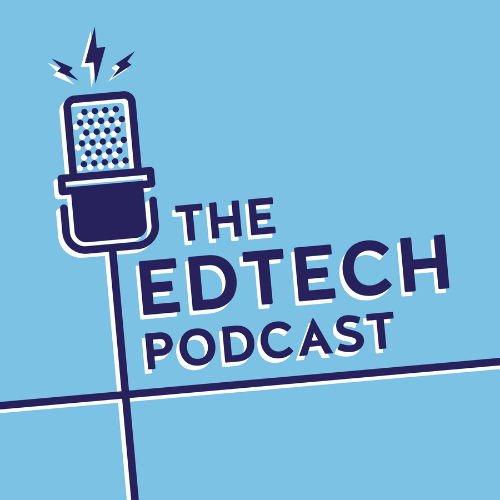
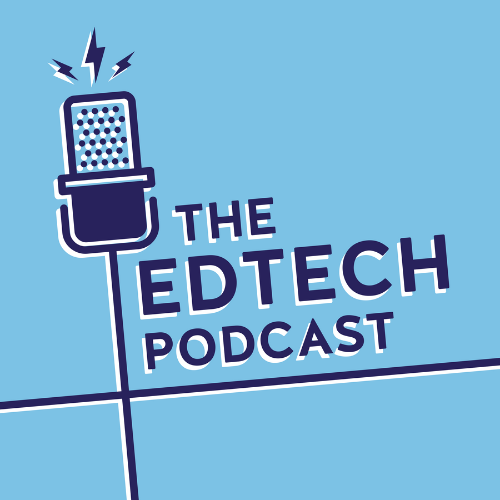
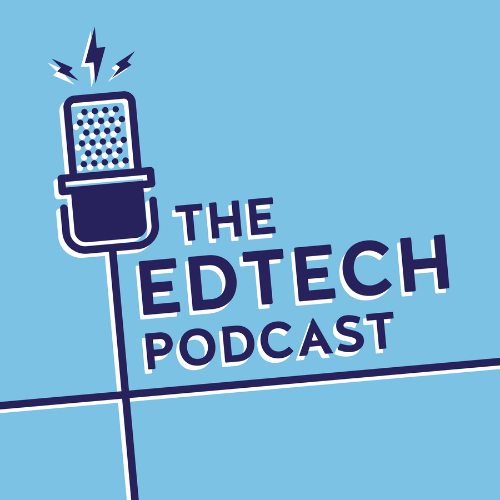
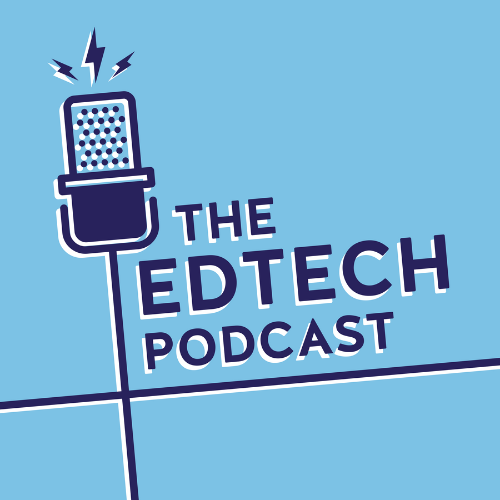

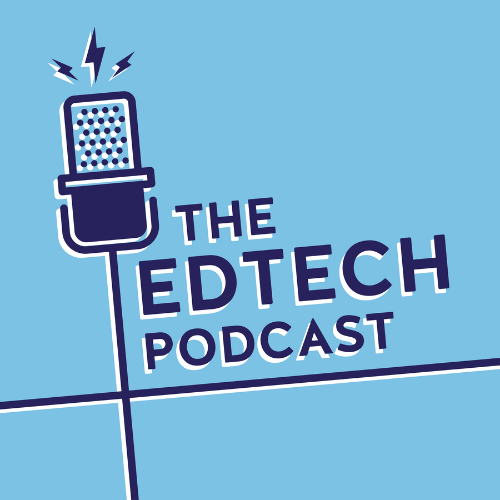


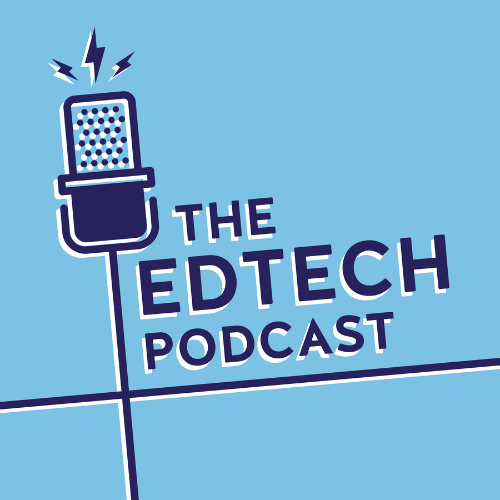
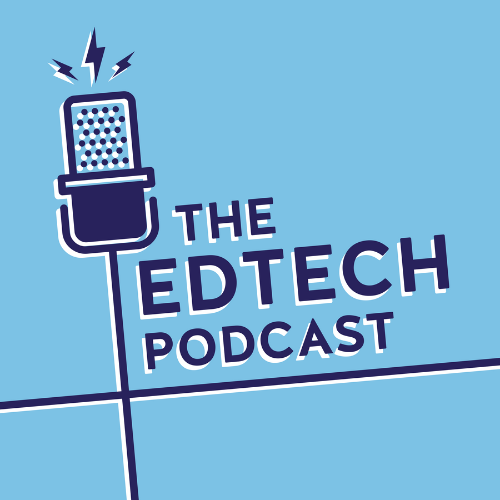
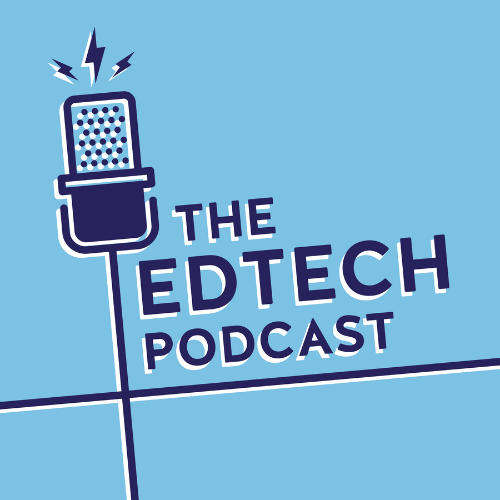
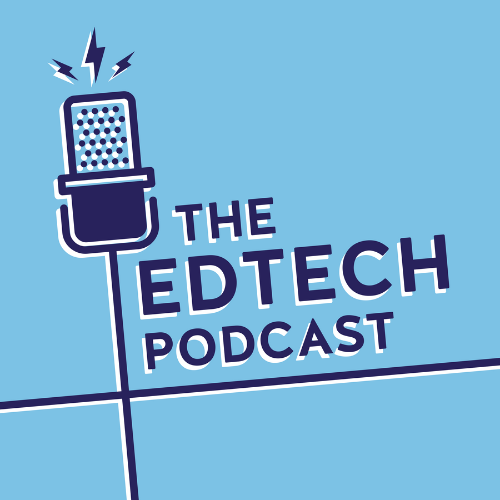
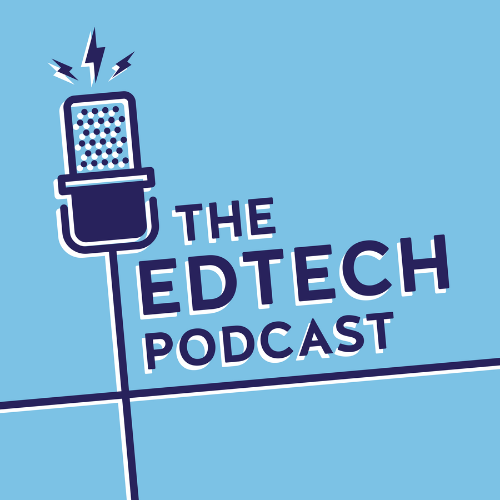
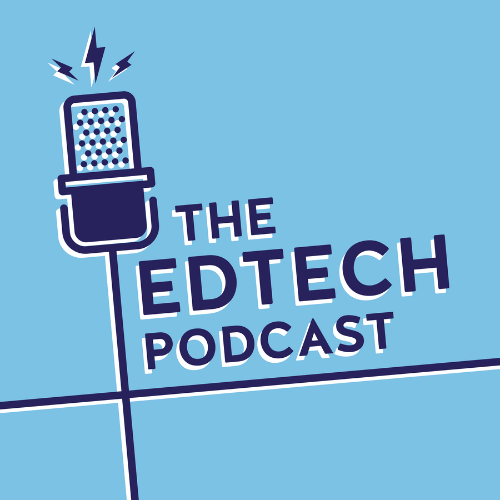



which are the two books that last speaker recommended?